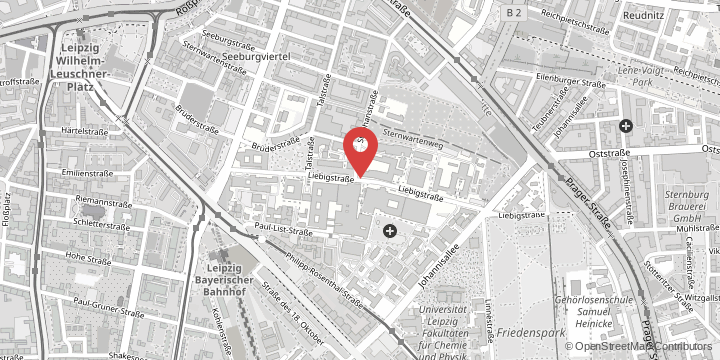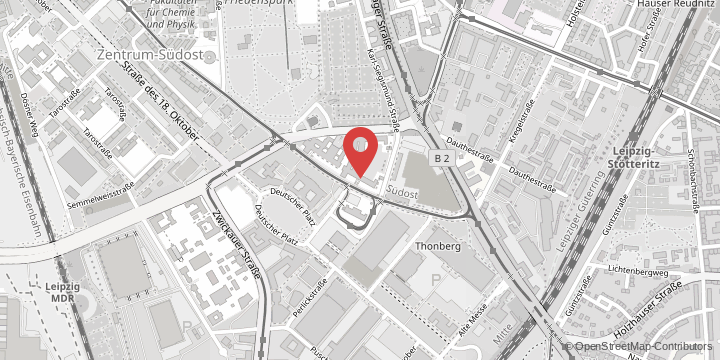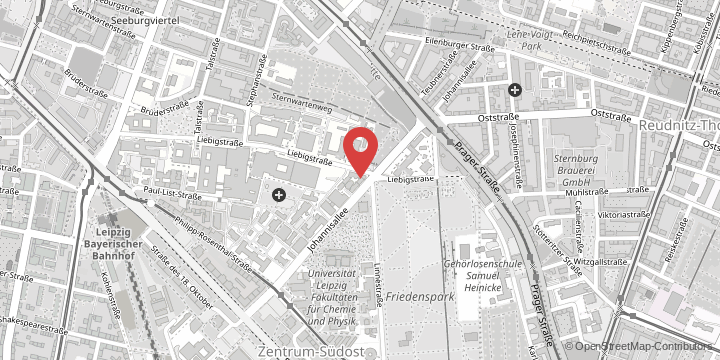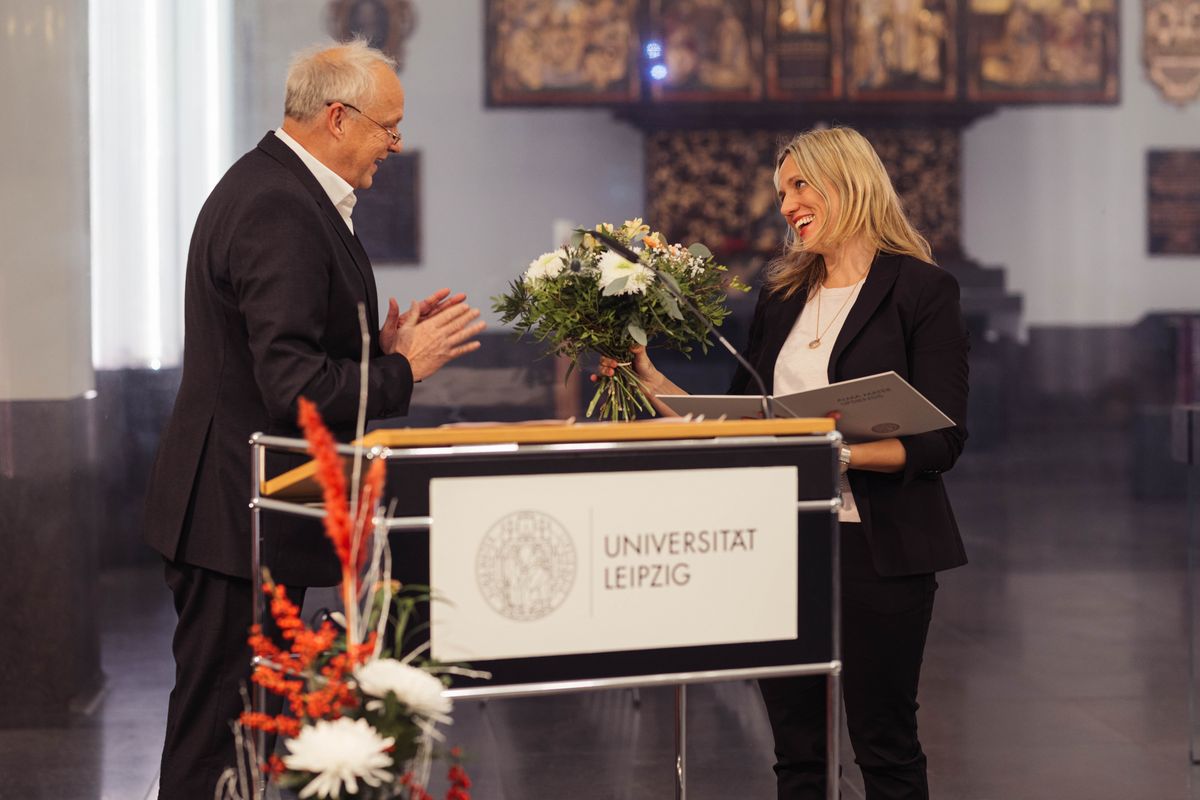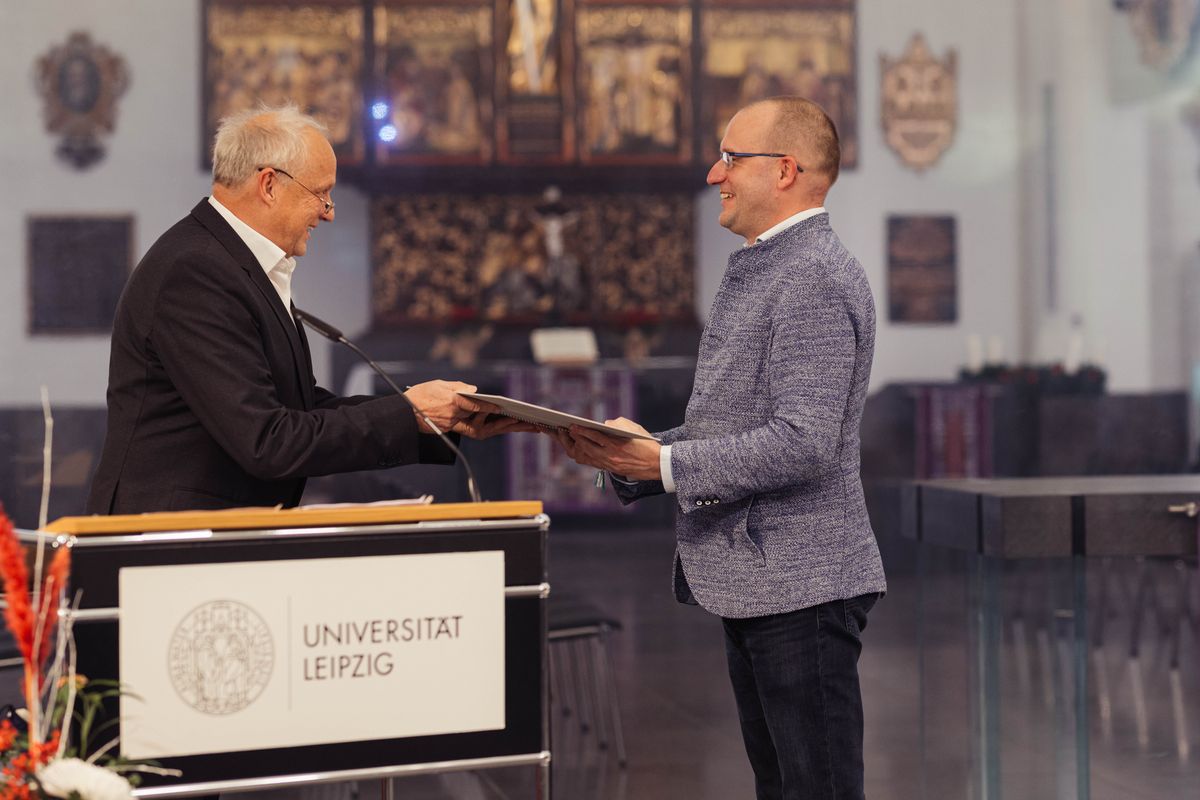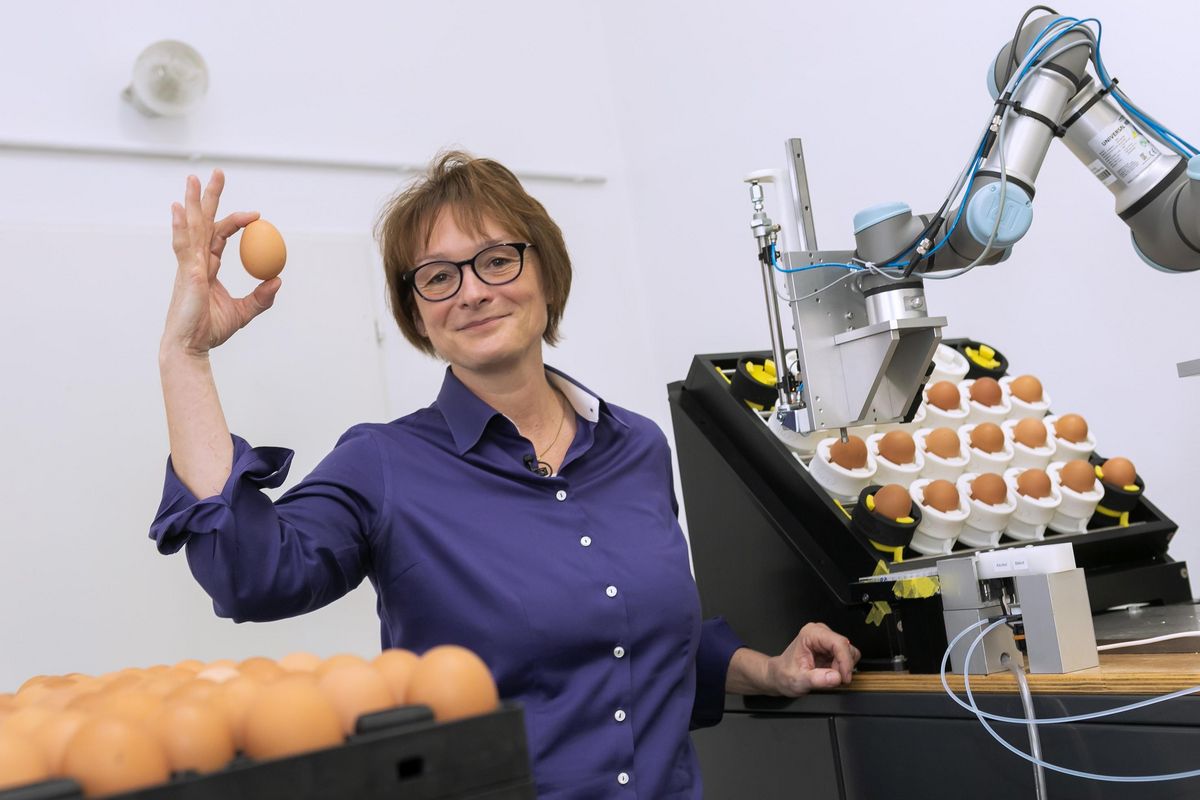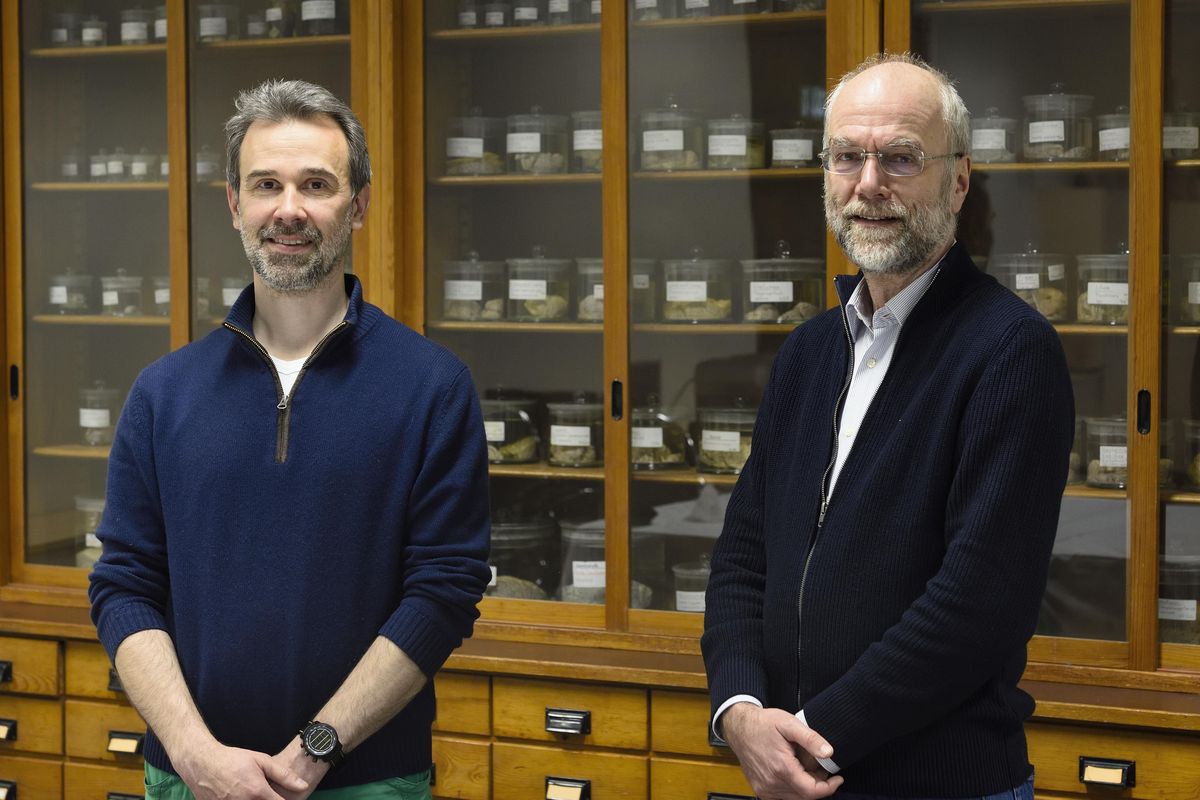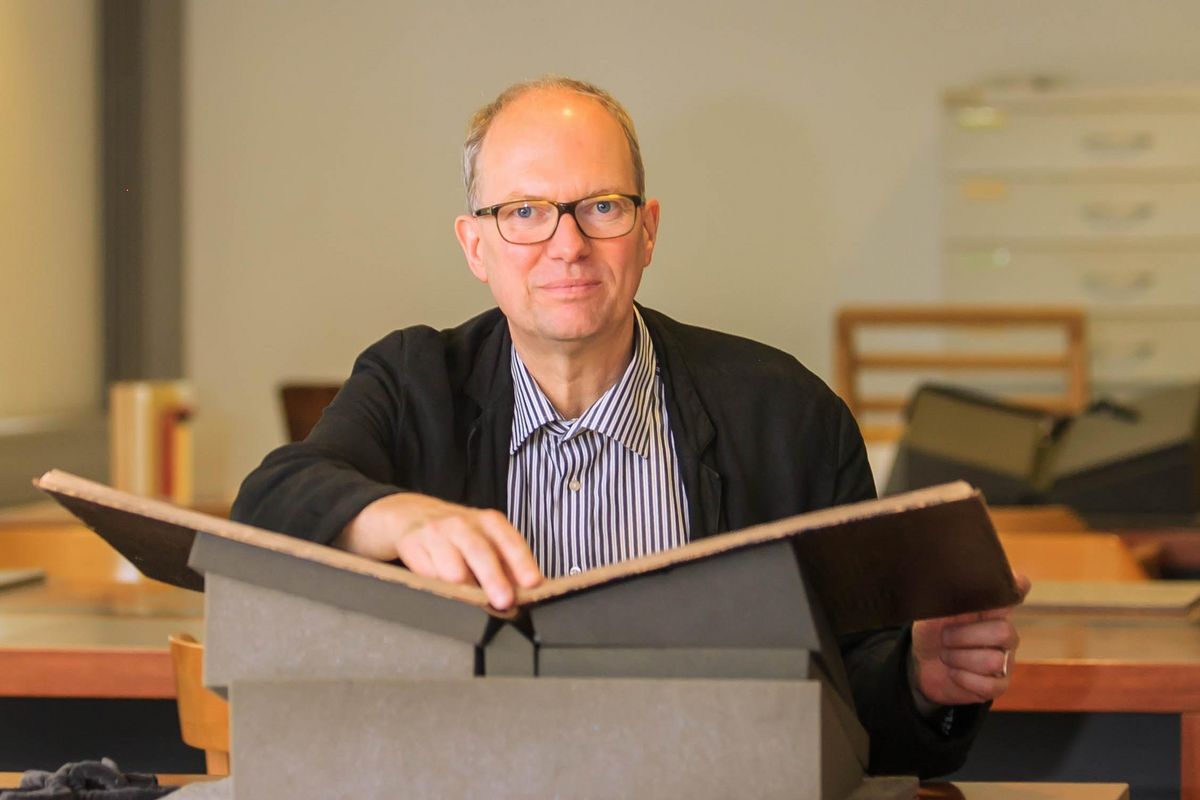The transfer of knowledge gained in research and teaching to business, politics, culture and civil society is one of the central tasks of our university. Often, successful transfer is only possible through the above-average commitment of individuals. This extraordinary commitment is to be honoured with the Transfer Prize of Leipzig University. The Transfer Prize is endowed with €15,000.
Transer Prize 2023
What are the conditions to be met?
- Individuals and teams can be nominated both for specific projects and for their outstanding commitment in the field of knowledge and technology transfer as a whole.
- Proposals can be made by either third parties or by the applicant him/herself. All graduates and non-scientific members of Leipzig University can be nominated.
- The prize money awarded has to be used for activities in the sense of knowledge or technology transfer at the University of Leipzig.
How does the process work?
Nominations can be submitted by email until 15 November 2023 and must include the following items:
- Statement of reasons (max. 1 page),
- Curriculum vitae in table form of the nominated person(s) as well as
- Evidence of achievements in the field of knowledge and technology transfer.
The prizewinners will be selected by a jury chaired by the Vice-Rector for Excellence Development: Research and Transfer. Up to two prizes will be awarded.
Transfer Prize 2021: Jury’s Decisions
Our society is based on a social order that manifests itself in rules and norms. And criminal law is of fundamental importance here as it both defines essential principles for human coexistence and sanctions violations. However, criminal law is only effective if the following can be understood: Why do we punish people? What do we punish? Whom do we punish? How do we punish and what is the intention?
Professor Elisa Hoven has contributed greatly to a research-based and broad social discussion of these and related issues. Her achievements extend far beyond those generally expected of lawyers and thus represent a particularly valuable contribution to greater confidence in research and the rule of law. She brings recent research, including her own, into the public debate and speaks on current, highly relevant topics such as social cohesion and triage in the context of the COVID-19 pandemic. Her hard work, commitment and visible enthusiasm have paid off.
Professor Hoven’s active and dynamic media presence is both a means to an end and proof of her successful research communication. Through consistent, authentic and cross-media research communication, she has influenced public agenda setting and positioned herself on many topics including controversial ones such as hate speech, immigration and crime, animal welfare, and sexual criminal law.
In the context of countless public events, in opinion pieces and statements for major media outlets, she explains criminal law positions and situations and thus successfully mediates in the interaction between experts and laypersons. The website wires, wirerklaerenstrafrecht.de, which she both created and has the ongoing responsibility for, is also evidence of Elisa Hoven’s dedication. The name of the platform means “we explain criminal law” and as such speaks for itself. Its low-threshold and attractive texts, videos and links to further programmes, podcasts and articles aim to make criminal law understandable, even to those who aren’t lawyers – and it also has a wide reach as content from the site is published on social media.
When it comes to politics, Elisa Hoven is respected and admired across party lines. She is regularly consulted as an expert in political decision-making processes. And as a member of the group Kriminalpolitischer Kreis, for example, she submits highly regarded statements and proposals on current criminal law policy issues that are significant now and will be for many years to come. Her appointment as a judge to the Constitutional Court of the Free State of Saxony is further proof of her expertise and its added value for society.
Elisa Hoven also passes on her knowledge and experience to her students and makes it a priority that they learn how to make their legal knowledge understandable to a broad audience.
Her dedication to knowledge transfer is an example of Leipzig University’s commitment to making academic knowledge have long-term beneficial results both in and outside of research. Through the achievements honoured here, she has contributed significantly to the success and visibility of knowledge transfer at the University and inspires its members to engage in similar activities.
Professor Elisa Hoven receives the Transfer Prize 2021 from Leipzig University for the successful transfer of outstanding research findings into social discourse and for her contribution to raising Leipzig University’s profile as a bearer of social responsibility.
A key element of Leipzig University’s transfer profile is its experience in the area of supporting business start-ups. Students, graduates and researchers at the University are increasingly using their knowledge and the skills they have acquired in the course of their studies and research to establish start-ups that are as innovative as they are successful. These success stories inspire and motivate, and they have shaped Leipzig University’s external image in a particularly positive way for many years now. And they would not be conceivable without the exemplary commitment of Professor Utz Dornberger.
Utz Dornberger has led the Smile start-up initiative since its establishment in 2006 and has built it into a successful project that has received national visibility. He shows young people who are interested in starting their own business how they can have an attractive career path that goes beyond academia and working in a regular salaried position, and he gives them all the tools they need to be successful on the path to self-employment. And at the same time he has made a significant contribution to achieving the goals he has set and that Leipzig University has agreed on with the Free State of Saxony for this area of action.
Professor Dornberger regularly contributes his broad expertise in knowledge and technology transfer to the processes of identifying strategies at Leipzig University and in individual faculties. He supports using consensus strategies and successfully acts as a multiplier and advocate of knowledge and technology transfer. For many years, he has been a driving force behind Leipzig University’s progressive, transfer-relevant networking – no matter whether in Eilenburg or Meißen or in Tunis or Hanoi.
He also played a central role in expanding the Halle-Jena-Leipzig Central German University Alliance to include the area of supporting business start-ups. Thanks to Professor Dornberger’s work, it was possible to acquire the International Startup Campus. This Campus aims to attract international start-up teams to the region, create synergies through training programmes and support start-ups that are entering international markets. It is also his priority to provide research-based support for small and medium-size enterprises through the University’s International SEPT Program, for which he has served as the director since 2004. He also regularly mentors individual start-up teams; for example, he most recently served as a mentor for the Disaster Relief System team, which was able to acquire a grant from the Federal Ministry for Economic Affairs to develop a water treatment system.
Utz Dornberger also brings his expertise in the fields of innovation and business development to various transfer-related committees and juries outside the University, in Leipzig and beyond. He hosts the popular and well-established Leipziger Gründernacht, where the prize winners present their business and start-up ideas. In addition, he has become a central figure and one of the key leaders in Leipzig’s start-up scene, which today makes a significant contribution to new beginnings, innovation and growth in our city.
Professor Dornberger has received this Special Prize for Transfer 2021 for his dedication to supporting research-based start-ups and providing research-based support for start-ups, helping Leipzig University become stronger and more visible in this field, and contributing to the positive development of Leipzig as a centre of research and business.
Special Prize for Transfer 2021: Professor Utz Dornberger
The prize recognises Professor Dornberger’s dedication to supporting research-based start-ups and providing research-based support for start-ups, helping Leipzig University become stronger and more visible in this field, and contributing to the positive development of Leipzig as a centre of research and business.
The prize money totalled €15,000.
Transfer Prizes 2020: Jury’s Decisions
The award winners were selected by a jury that was chaired by Professor Thomas Lenk, the vice-rector for development and knowledge transfer, and included University members and representatives from the relevant social sectors.
Higher Education Transfer Prize 2020: Professor Almuth Einspanier
Professor Almuth Einspanier receives the Transfer Prize 2020 from Leipzig University for the successful transfer of outstanding research findings into practical applications that go beyond the consequences for animal welfare and have significant implications for politics, case law and consumers.
She is a professor for endocrinology and executive director of the Institute of Physiological Chemistry in the Faculty of Veterinary Medicine.
The prize money totalled €15,000.
Higher Education Transfer Prize 2020
In Germany alone, about 100,000 day-old male chicks are killed every day immediately after hatching because they are not economically viable. Putting an end to this practice is a demand being voiced by a steadily growing number of social sectors and a goal set by the current federal government. Most recently, the Federal Administrative Court declared the practice permissible, but only until procedures were introduced that allow the sex of the chick to be determined in ovo.
Thanks to her pioneering endocrinological research and her hard work and commitment, Professor Almuth Einspanier has succeeded in developing a method to determine the sex of chick embryos by means of hormone analysis and has contributed significantly to its marketability and economic exploitation. These eggs carry the Respeggt Label and are now widely available in retail stores.
Together with partners and sponsors from business and politics, Professor Almuth Einspanier forged the path from basic research and patenting to the market introduction of the in-ovo sex determination of chicks. Her work is an example of Leipzig University’s intention to make academic knowledge have long-term beneficial results both in and outside of research.
The path she took was certainly not an easy one. And yet her success shows that perseverance and persistence do pay off. In addition to the monetary value of the patent, the achievements honoured with this prize have contributed significantly to the visibility of transfer at Leipzig University and also serve the University’s goal of distinguishing itself as a driver of social innovation and inspiring its members to engage in similar activities.
Professor Almuth Einspanier receives the Transfer Prize from Leipzig University for the successful transfer of outstanding research findings into practical applications that go beyond the consequences for animal welfare and have significant implications for politics, case law and consumers.
Faculty of Medicine Transfer Prize 2020: Professor Thomas Arendt und Dr Jens Stieler
Professor Thomas Arendt and Dr Jens Stieler receive the Faculty of Medicine Transfer Prize 2020 in recognition of their exceptional work in translating clinical research into a market-ready product and their contribution to combating Alzheimer’s disease.
Thomas Arendt is a professor for neuroscience and director of the Paul Flechsig Institute of Brain Research in the Faculty of Medicine. Dr Jens Stieler is a research assistant at the Paul Flechsig Institute.
The prize money totalled €15,000.
Faculty of Medicine Transfer Prize 2020
Given the steady increase in the number of older and elderly people, Alzheimer’s disease presents our society with major challenges in the areas of medicine, health economics and care. About 1.2 million people in Germany live with the disease, and about 500 new cases are diagnosed every day. Early detection is an important step that makes it possible to implement successful strategies for prevention and treatment.
Thanks to many years of research – in the case of Professor Arendt twenty years – Professor Thomas Arendt and Dr Jens Stieler have succeeded in developing a blood test for the early diagnosis of Alzheimer’s disease and in patenting and clinically validating the method. In partnership with a US company that is serving as a licensee for Leipzig University, the market launch of the test will soon be possible.
Professor Thomas Arendt and Dr Jens Stieler receive the Faculty of Medicine Transfer Prize 2020 in recognition of their exceptional work in translating clinical research into a market-ready product and their contribution to combating Alzheimer’s disease.
Special Prize for Transfer 2020: Professor Ulrich-Johannes Schneider
The jury awards Professor Ulrich-Johannes Schneider the Special Prize for Transfer for his life’s work and his achievements as a knowledge and research communicator.
Ulrich-Johannes Schneider is the director of the University Library and professor for cultural and social philosophy at the Institute for the Study of Culture in the Faculty of Social Sciences and Philosophy.
The prize money totalled €7,500.
Special Prize for Transfer 2020
In countless lectures, exhibitions and other high-profile formats, Professor Ulrich-Johannes Schneider has worked hard to generate interest far beyond the disciplinary boundaries of philosophy and librarianship, brings attention to the relevance of academic knowledge, and makes this knowledge accessible and beneficial outside academic contexts.
Professor Schneider’s commitment to Leipzig’s Thomasius Club, an academic podcast, is just one example of his achievements. Since the podcast began in 2006, he has served as a co-moderator and been largely responsible for the regular episodes and success of this format of transparent research communication between academia and the local society, which has been able to reach a diverse audience.
Finally, Professor Schneider’s desire to make the wealth of knowledge that has been handed down and continually expanded at Leipzig University accessible to broad sections of society is also reflected in his pioneering efforts to increasingly make the University Library a place of exchange and encounter, using means of interior design as well as digitalisation.
The jury awards Professor Ulrich-Johannes Schneider the Special Prize for Transfer for his life’s work and his achievements as a knowledge and research communicator.







